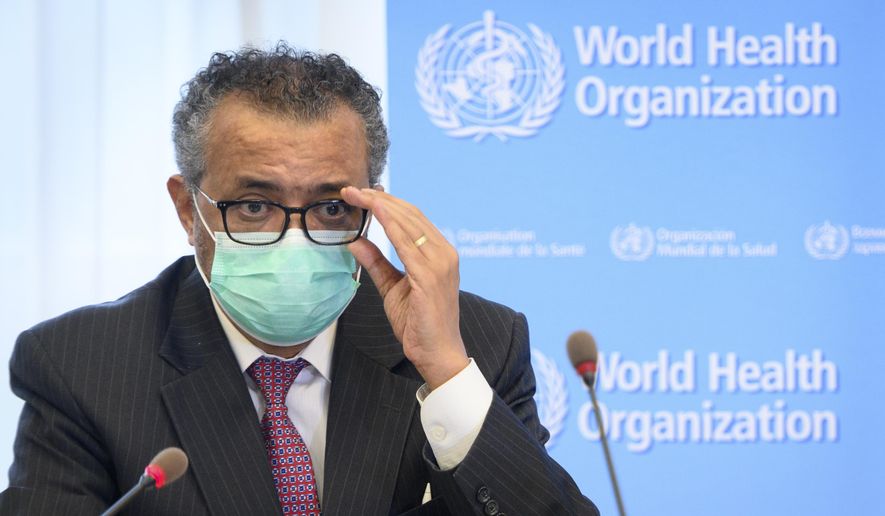Vaccine donations to Africa must be more predictable and include vials with a shelf life of at least 10 weeks, the World Health Organization and partner groups said Monday, saying “ad hoc” shipments from wealthy nations with little notice make it difficult for the continent to use the shots it receives.
The call comes amid fears that lackluster vaccination rates provided space for an alarming coronavirus variant, omicron, to appear. President Biden called on other wealthy nations to match America’s “speed and generosity” in donating shots as the world pushes to vaccinate 70% of Africa.
But WHO said supply is only part of the story. African nations need time and flexibility to plan how they will distribute the shots and organize the “cold chain” used to store the vials.
“Countries need predictable and reliable supply. Having to plan at short notice and ensure uptake of doses with short shelf lives exponentially magnifies the logistical burden on health systems that are already stretched,” the joint statement said. “It also dramatically increases the risks of expiry once doses with already short shelf-lives arrive in-country, which may have long-term repercussions for vaccine confidence.”
Only 10% of Africans have received at least one dose of a vaccine, compared to more than two-thirds of the populations in the U.S. and European Union amid criticism that wealthier places snapped up early supply.
So far, 90 million doses have been donated to Africa through COVAX, a major vaccine-sharing group, and other alliances.
“However, the majority of the donations to date have been ad hoc, provided with little notice and short shelf lives. This has made it extremely challenging for countries to plan vaccination campaigns and increase absorptive capacity,” WHO said in a joint statement with the African Union, UNICEF, the Africa Centers for Disease Control and Prevention, the Coalition for Epidemic Preparedness Innovations (CEPI) and Gavi, The Vaccine Alliance.
Former Food and Drug Commissioner Scott Gottlieb, who sits on the board of vaccine maker Pfizer, told CBS’ “Face the Nation” that five of the eight countries that fall under the U.S. travel have told Pfizer to slow down shipments because they haven’t been able to distribute what they receive.
Monday’s joint statement said donating countries must release donations that include a large volume of shots in a predictable manner. They also should not “earmark” them for specific recipients because it makes it harder for African distributors to be flexible and make the best use of their cold chains.
The shots should be able to last for 10 weeks unless receiving countries say otherwise, and recipients should be given a heads up on donations at least four weeks in advance.
All sides should communicate efficiently instead of sending last-minute messages that complicate the process, and donations should include ancillary supplies such as syringes and materials to dilute the doses, the WHO and partners said.
For more information, visit The Washington Times COVID-19 resource page.
• Tom Howell Jr. can be reached at thowell@washingtontimes.com.




Please read our comment policy before commenting.